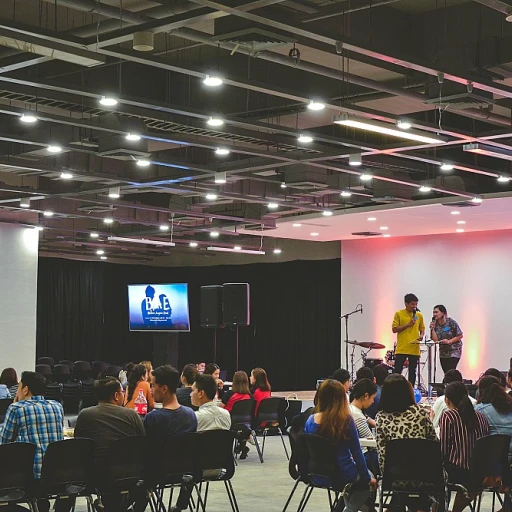The Intersection of AI and HR Compliance
AI's Growing Influence in Navigating HR Compliance
The intersection of Artificial Intelligence (AI) with Human Resources (HR) is increasingly significant, particularly in managing complex compliance issues such as Colorado's sick leave law. The overarching aim is to streamline processes for both employers and employees while ensuring adherence to legal requirements. With laws such as the Health Family Workplace Act (HFWA) in Colorado, understanding AI's role is crucial for efficient leave management.
Employers in Colorado are mandated to provide paid leave, including sick leave, to their employees. The state's leave law requires employers to offer paid sick time, allowing employees to take care of their own health or that of family members. This also includes instances like public health emergencies or school place closures due to inclement weather.
AI's expertise in data processing can assist employers in managing these leave laws effectively, ensuring that the right amount of hours worked translates into the correct amount of leave and paid sick time. Being able to track and analyze leave patterns can also aid in predicting future workforce needs, counterbalancing the burdens that might arise from sudden health emergencies or changes in employee availability. Exploring AI's potential in these areas not only enhances efficiency but also aligns with legal mandates, as seen in similar policies.
Leveraging AI for Efficient Leave Management
Optimizing Leave Systems through AI Technology
In today's competitive workforce, employers are increasingly looking to leverage technology to optimize leave management. With the implementation of laws like Colorado's Health Family and Workplace Act (HFWA), there is a greater need for efficient systems to ensure compliance with sick leave requirements. Leveraging AI in HR operations can significantly streamline paid leave processes, benefitting both employees and employers. One of the major advantages of AI in leave management is its ability to process vast amounts of data related to employees' hours worked, providing accurate and timely information about accrued leave. With AI-driven systems, employers can efficiently manage leave requests and approvals, ensuring compliance with Colorado's sick leave laws without the burden of manual record-keeping. Furthermore, AI technology can facilitate the seamless integration of leave data into payroll systems, ensuring accurate calculation of paid sick leave based on individual employee circumstances. This includes considerations such as leave to care for a family member or during a public health emergency, which are essential under Colorado legislation. Employers can benefit from predictive insights generated by AI to better prepare for periods of high sick leave uptake, such as inclement weather or widespread health conditions. These insights aid workforce planning, ensuring that business operations can continue smoothly without compromising the well-being of employees. In conclusion, the utilization of AI in managing leave systems under complex state regulations, such as those in Colorado, provides significant advantages in terms of efficiency and compliance. For further insights on leveraging AI for HR processes in conjunction with legal frameworks, explore this detailed analysis on the implications of Labor Code 226 in the age of AI.Data Privacy Concerns with AI in HR
Addressing Data Privacy and Confidentiality
Ensuring data privacy is crucial when using AI in HR, particularly in Colorado where sick leave laws introduce unique challenges. Employers must navigate the complexities of maintaining employee privacy while adhering to statewide legislation like the Colorado Health Family and Work Act (HFWA). AI systems often require access to employee data to function effectively, especially in managing paid sick leave. Such data includes sensitive information related to an employee’s health, family members' care needs, and hours worked. Employers are responsible for ensuring this information remains confidential and is used solely for its intended purpose—the efficient management of leave. Adopting AI into HR processes raises questions about how these systems handle personal data, particularly in relation to the state's regulations on paid sick leave. To address these concerns, HR departments must develop robust policies that limit data access and ensure compliance with local laws. Implementing these strategies requires collaboration with AI developers to create algorithms that respect privacy while streamlining processes like calculating sick time and managing health emergencies effectively. Moreover, in the context of a public health event like a PHE leave or inclement weather, AI can work seamlessly with HR teams by predicting the potential impact on workforce availability and facilitating quick adaptations. However, the stewardship of data privacy is essential to maintain trust and adhere to legal standards. Empowering AI with the capability to respect confidentiality ensures that employers provide the necessary support for employees without infringing on their personal data rights. This aligns with local leave laws and demonstrates a commitment to ethical AI deployment in the workplace. For a deeper understanding of these issues and more, examining the comprehensive guide to HR professional exams can provide valuable insights into navigating this complex landscape.Training AI to Understand Legal Nuances
Training Machines to Grasp Legal Complexities
When integrating artificial intelligence in human resources, particularly for compliance with leave laws like those in Colorado, training AI to comprehend legal intricacies becomes paramount. This necessity to train AI systems is heightened by the Health Families and Workplaces Act (HFWA), which mandates that employers provide paid sick leave to employees. The complexity of leave policies requires AI systems to navigate through various terms, such as hours worked, sick time, and family member care, while aligning with state-specific guidelines.
AI’s role in understanding the HFWA is crucial as the law stipulates that employees accrue one hour of sick leave for every 30 hours worked. This means AI systems must be adept at calculating these accruals while considering other factors like the size of the company, which influences the total paid leave employers provide.
Another layer centers around definitions: when a school place or a place of care closes due to a public health emergency, AI needs to interpret whether it qualifies an employee for additional sick leave. Furthermore, the AI must understand the implications of loco parentis, where an employee may have responsibilities for a child or a family member that extends beyond typical care requirements.
Training AI to handle these intricacies also involves programming the system to recognize distinct scenarios, such as PHE leave due to inclement weather or a direct health condition affecting an employee or their family member. Employers deploying these AI systems benefit from reduced errors in managing diverse leave scenarios, thus ensuring compliance with state laws.
Ultimately, enhancing AI’s ability to manage these complexities not only helps employers stay compliant but also supports employees in receiving their rightful paid sick leave, fostering a healthier workplace environment.
AI's Role in Predictive Analytics for Workforce Planning
Predicting Workforce Needs with AI
The effective application of AI in human resources goes beyond mere administrative management. With the advent of sophisticated technology, employers can now leverage AI's capabilities in predictive analytics to optimize workforce planning, especially when it comes to managing leave and attendance. This becomes crucial in Colorado where compliance with leave laws such as HFWA requires detailed attention to paid sick leave and hours worked.
Predictive analytics in HR allows employers to foresee potential health-related absences, reflected by historical data and trends. AI's capacity to analyze vast datasets aids employers in preparing for increased sick leave, whether during recurrent public health emergencies or seasonal health fluctuations.
More so, AI can be utilized to assess the impact of external factors such as inclement weather or health emergencies on employee availability. By estimating the likelihood and potential duration of such absences, employers can ensure adequate staffing levels and maintain operational efficiency.
Furthermore, a predictive approach helps human resources teams identify patterns related to paid leave usage, understanding how different variables affect days taken due to care responsibilities for family members or school place closures. This not only enhances workforce planning but also contributes to better adherence to state leave requirements.
Overall, using AI for predictive analytics in workforce planning not only helps employers comply with Colorado’s leave law under HFWA and FAMLI, but also supports a proactive strategy in managing employee wellbeing, fostering a more resilient HR infrastructure.












